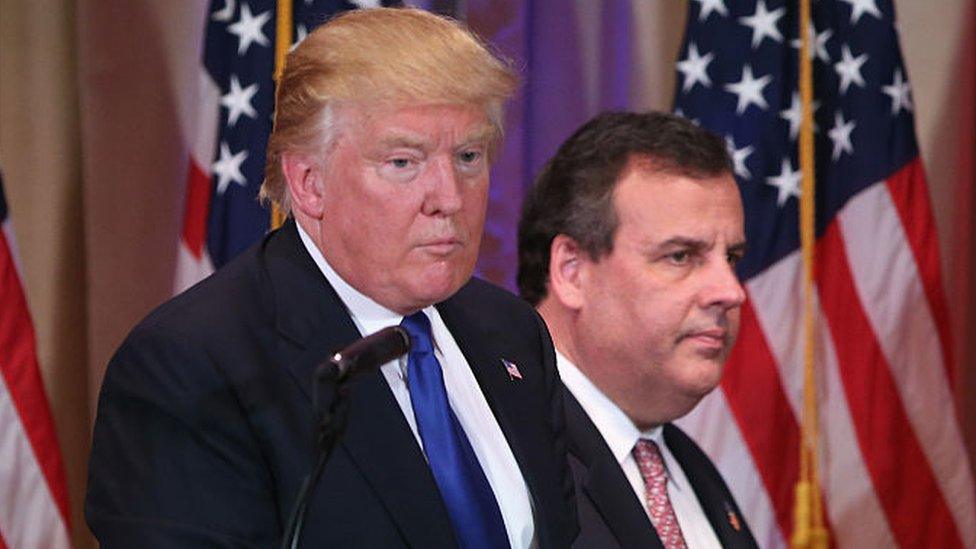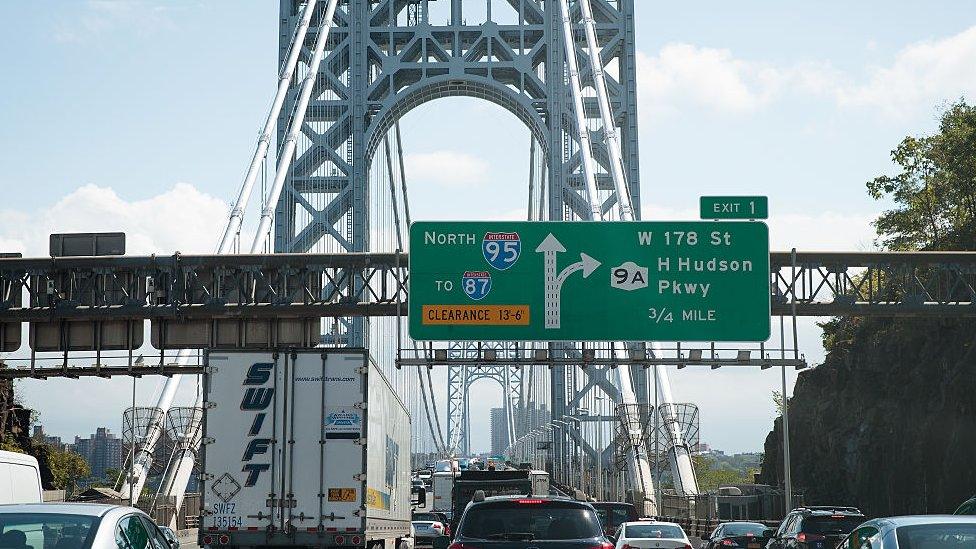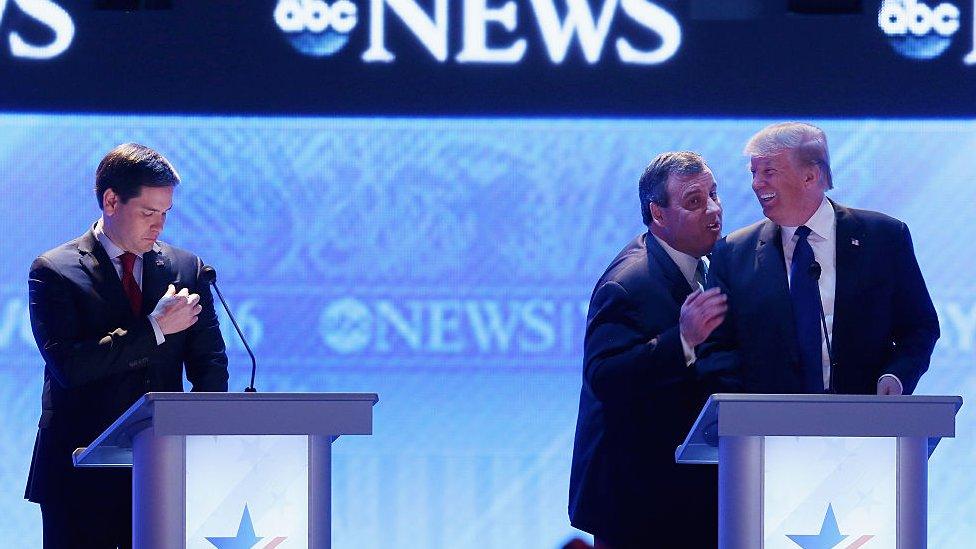The fall and fall of Chris Christie
- Published

Back in December Donald Trump said New Jersey Governor Chris Christie "totally knew" about his staff engaging in a politically motivated closing in 2013 of several lanes on a key bridge from his state into New York City.
It turns out Mr Trump may have been right.
On Monday, federal prosecutors in the trial of two New Jersey government officials over their involvement in what has become known as the "Bridgegate" scandal said one of the defendants and a star witness boasted about their actions to the New Jersey governor at the time.
It's a rare point of agreement between the prosecutors and the defence attorneys whose case largely rests on Mr Christie's knowledge - and approval - of the lane closures.
The prosecution asserts that even though Mr Christie obviously knew of his aides' actions, which were taken to punish a local Democratic mayor who declined to endorse the governor in his 2013 re-election bid, the staff members should still be held culpable.
"At the end of this case the only issue for you to decide is whether Bridget Kelly and Bill Baroni are guilty of the crimes with which they are charged beyond a reasonable doubt," prosecutor Vikas Khanna said. "That's it."
Monday's revelation runs counter to the governor's repeated insistence that he knew nothing about the actions of his subordinates, which he said were "completely inappropriate and unsanctioned". More than that, it caps what can only be described as an epic reversal of fortune for the man who five years ago was considered a rising star in the Republican Party and had once been talked about as presidential front-runner in both 2012 and 2016.

Prosecutors allege that Chris Christie knew his staff was using the George Washington Bridge as a tool for political payback
The Bridgegate scandal first ensnared Mr Christie in January 2014, when news spread that a series of traffic jams on the George Washington Bridge were more than just a routine bridge maintenance project.
In the ensuing months, Mr Christie's in-state approval numbers tanked, putting his 2016 White House hopes in danger.
Federal prosecutors conducted an investigation and indicted Mr Christie's aides, not the governor, in the matter in 2015. He ended up making a run for the Republican presidential nomination despite the lingering doubts about the controversy, but his bid was cut short due to meagre fundraising and an underwhelming performance in the Iowa caucuses and the New Hampshire primary.
The New Jersey governor's campaign may be best remembered for his rhetorical garrotting of fellow candidate Marco Rubio on a New Hampshire debate stage just days before that state's primary. At the time, Mr Rubio was riding a surge of support following a surprisingly close third-place finish in Iowa, and he appeared poised to go toe-to-toe with Mr Trump in the coming nomination contests. Instead his support cratered, and his campaign never fully recovered.
Despite his own campaign collapse, Mr Christie wasn't finished, as he shocked the political world in late February when he became the first major party officeholder to endorse Mr Trump.

Chris Christie skewers Marco Rubio (left) at debate in New Hampshire, but he doesn't reap the rewards
The New Yorker, the governor said, "is rewriting the playbook of American politics because he is providing strong leadership that is not dependent upon the status quo".
In the coming weeks, however, Mr Christie would become the butt of jokes for standing wide-eyed and unblinking behind his new political ally at campaign appearances. He'd also occasionally be the target of Mr Trump's caustic humour, such as when he joked about Mr Christie's weight, external or that the governor had spent more time, external in New Hampshire than in his home state.
Mr Christie did make Mr Trump's vice-presidential short list - and may have been the nominee's personal favourite, given his pugnacious style.
In the end, however, Mr Trump went with Indiana Governor Mike Pence - leaving Mr Christie to speculate that the Bridgegate scandal may have diminished his chances here, as well.
Now, his fortunes rest entirely on Mr Trump's political success. If the Republican wins, he will be in charge of the transition process and may end up with a plum position in the new administration. If he loses, Mr Christie's reputation among establishment Republicans will be in tatters in the final year of his governorship.
Chris Christie appeared alongside Donald Trump in Florida
Despite the bad news on Monday, Mr Trump is still sticking with his loyal ally, issuing a statement that did not specifically mention the lastest Bridgegate developments.
"I have known and liked Chris for 15 years," Mr. Trump said. "After his recent run for president, he called me to say that he would like to endorse me in that he sees a movement like he has never seen before. I was greatly honoured, accepted his endorsement, and he has been a spectacular advocate ever since."
What may be the New Jersey governor's final star turn came at the Republican National Convention in July, when he gave a blistering denunciation of Hillary Clinton during a prime-time speech. In it, the former federal prosecutor pretended to preside over the trial of the Democratic nominee, leading the convention crowd in cries of "guilty!"
Now, in a real courtroom with real prosecutors, Mr Christie's political career is effectively on trial. And whether the defendants are found guilty or not, the punishment for the New Jersey governor has already been severe.